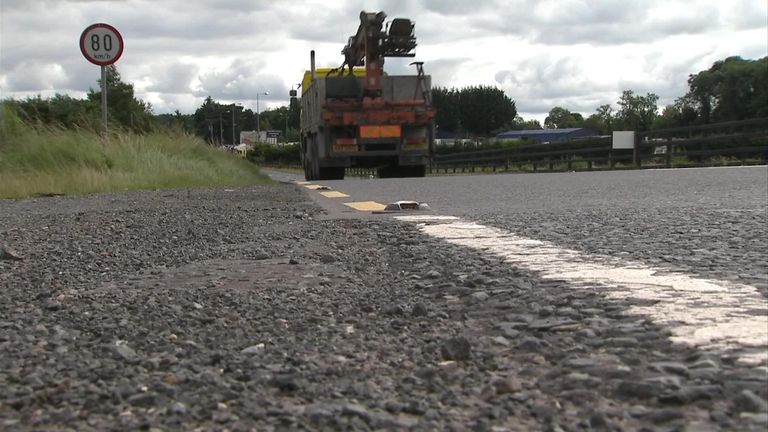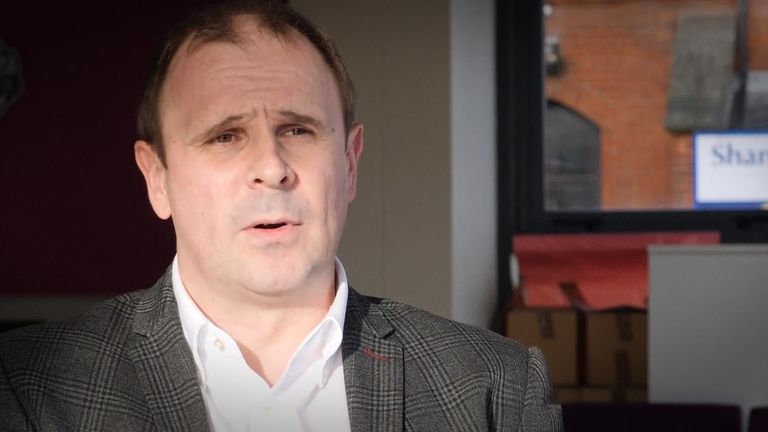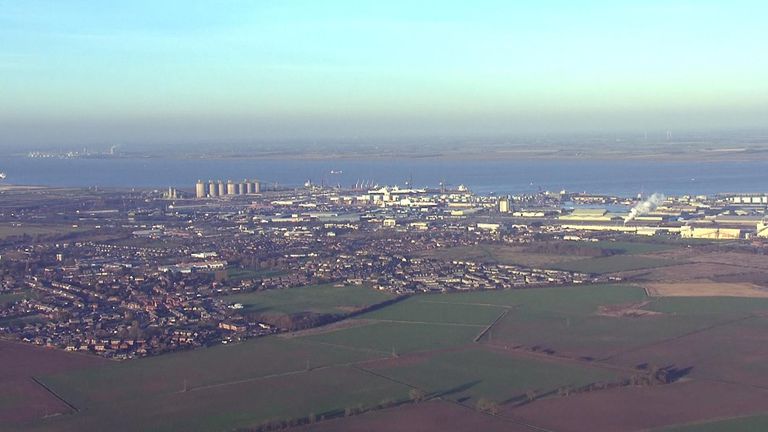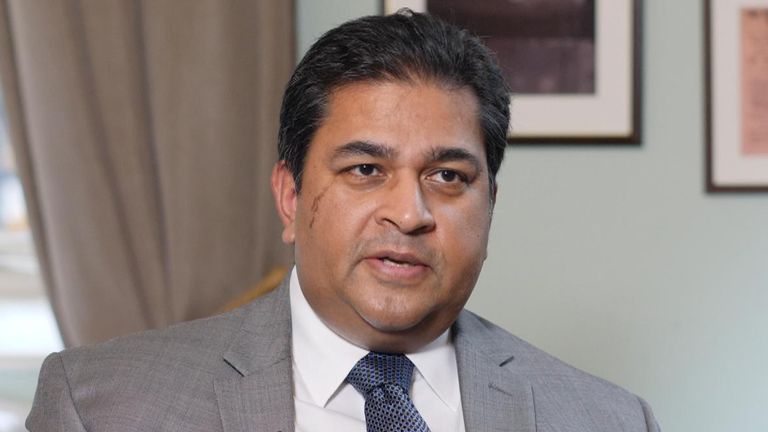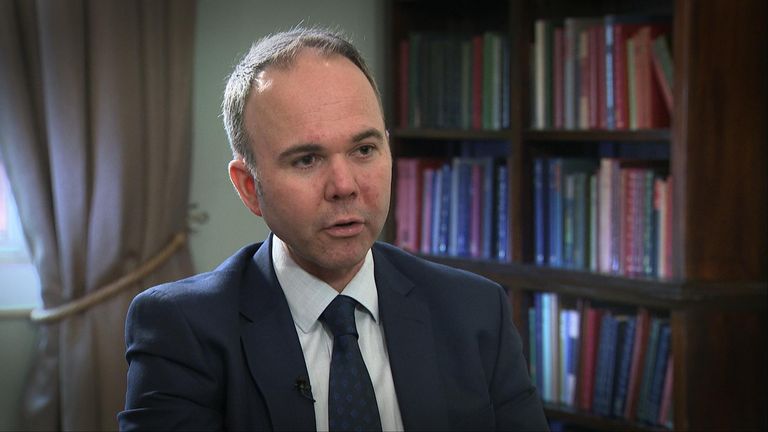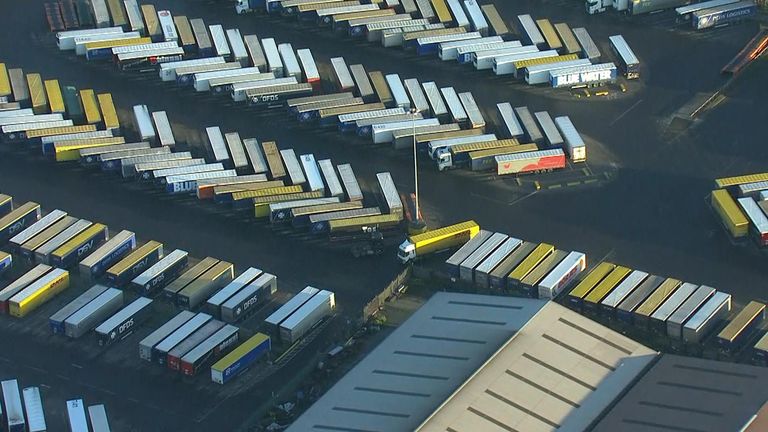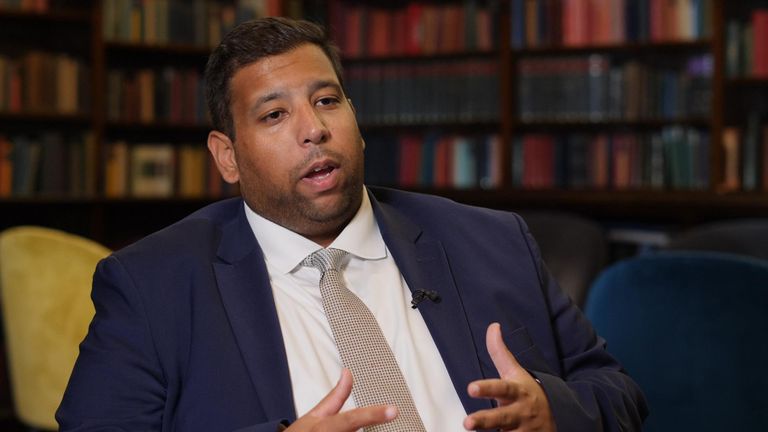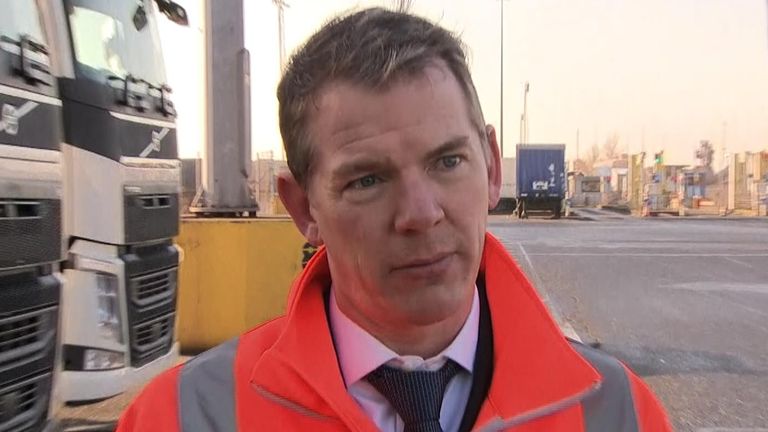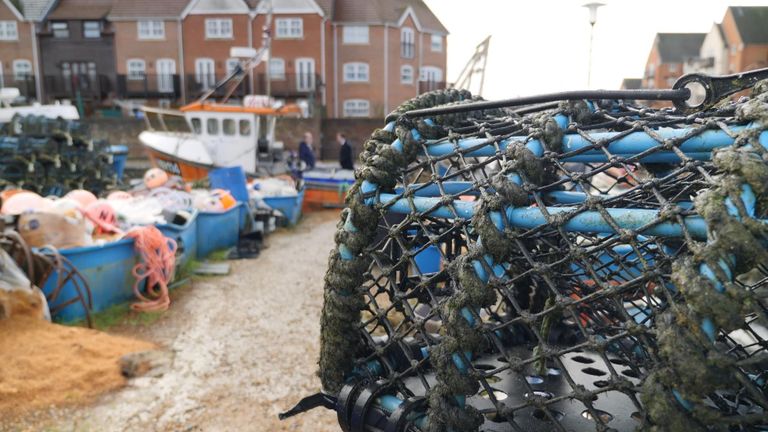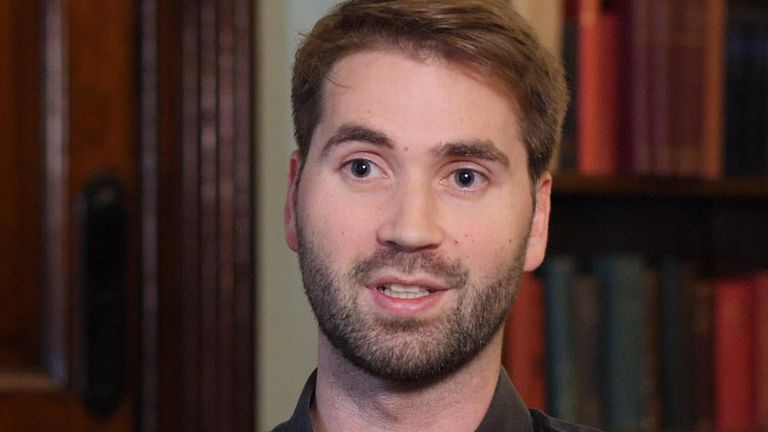Protests over PM’s Brexit plan could become ‘more serious’ in Northern Ireland, loyalist warns
A prominent loyalist has warned Boris Johnson’s Brexit plan could mean protests spilling over into “something more serious” if it weakens Northern Ireland’s place in the UK.
Northern Ireland remains one of the most complex and intractable parts of the Brexit conundrum and experts say the issue will require much more negotiation between the UK, Ireland and rest of the EU.
Ahead of Brexit day on Friday, Sky News has spoken to leading experts and those on the frontline most likely affected by Britain’s split from the economic and political union after 47 years.
They warn that:
- There is a significant chance Britain and the EU will fail to strike a trade deal within a year because the UK and EU remain so far apart on key issues. If there is a trade deal, the impact to the UK economy may not be much better than the one under a no-deal scenario
- Any additional customs or regulatory checks or paperwork at the border from next year will mean Britain’s biggest ports become “full very quickly” with disruption, backlog and higher costs, according to the UK head of shipping and logistics company DFDS Seaways
- Post-Brexit Britain will be able to develop an “innovative” agriculture sector and more dynamic healthcare and biotech industries by dumping the EU “precautionary” principle to regulation, according to a leading Brexiteer adviser
- The chance of negotiating a Norway-style compromise on fishing this year, which sees detailed talks on new and different quotas, is highly challenging to complete in months
- Nationalists and unionists in Northern Ireland are nervous at the impact on the fragile peace from changes that result in the constitutional changes to the UK
Northern Ireland remains one of the most tricky areas to be resolved in upcoming negotiations, as EU and UK politicians work out how broad principles agreed by Mr Johnson will work in practice.
Last year the prime minister struck a deal with Brussels which will see Northern Ireland keep some EU rules on the regulation of goods after Brexit.
Meanwhile, customs duties will have to be paid on goods being moved from Great Britain to Northern Ireland if those products are considered “at risk” of then being transported into the Republic of Ireland, and the EU.
The definition of “at risk”, and the proportion of goods this will cover, is yet to be determined and tariffs won’t necessarily be due if the UK and EU have a free trade agreement.
Sky News spoke to figures in Northern Ireland who warned that politicians must be mindful of the fragile peace in the region when working out their plans.
Winston Irvine, a community organiser and prominent loyalist, explained why some in the unionist community are worried particularly by signs there will be extra checks.
He said: “I think viewed as the potential for a slippery slope – that this would be the beginning of a divergence and set of changes that will see the Northern Ireland economy, and maybe other parts of Northern Ireland governmental arrangements and the relationship with the UK edging away from the UK and being directed more closely aligned with the Republic, and therefore the EU.”
He added that the deal negotiated before Christmas by Mr Johnson does have a commitment to “unfettered access” for goods from Northern Ireland to the rest of the UK but there is still scepticism.
He warned: “There is always the potential for wide scale political protest – and that is something certainly I would hope we could avoid. Certainly the loyalists I work with don’t want to see a return to violence, the bad old days of the past.
“But if there were to be any kind of weakening of Northern Ireland’s constitutional position within the context of the UK, then I fear we would see the prospect of wide-scale political protest. And I think in that context you always have the potential for that spilling over into something more serious.”
Some allies of the prime minister suggests that Northern Ireland becomes a “special economic zone” from which they could benefit.
Shanker Singham, a Brexiteer trade adviser and chief executive of Competere, a trade advisory company, said: “They’re the only place in the entire world that is both in the UK customs union on a legal basis, which means that they will – everyone in Northern Ireland – financial services firms, anybody – defence, Airbus, anybody – they will benefit…
“If the Northern Irish are wise, they will seek manufacturing bits of manufacturing supply chains to go to Northern Ireland specifically to take advantage of this sort of dual role that they play.”
However SDLP Councillor Séamas de Faoite, chairman of the Brexit select committee on Belfast City Council, refused to find positives about Brexit to talk about.
“We’re yet to see any opportunities that might come out of Brexit,” he said.
“Every single witness that has come to the Brexit committee in city hall, bar one, has suggested there will be significant barriers placed to trade, to travel, free movement of people, goods and services from Northern Ireland to both Britain and EU – this limits all of our opportunities at a time we should be looking for greater opportunities for this place.”
Gavin Barwell, the former chief of staff to Theresa May, said that the challenge on Brexit was connected to identity.
“My reading of what they’ve agreed at the moment is that it preserves north-south movement of goods,” he told Sky News.
“The government will be able to protect west-east movement of goods, but there are going to be some checks, east to west, from Great Britain today.
“The [next issue] is a more difficult one, which is about identity. And this was always one of my criticisms of the way the EU approach this issue.
“It works both ways. checks on the Northern Ireland – Ireland border would have posed a massive issue to those people who feel very strongly about keeping that border as is, but unionists are going to be very concerned about anything that feels that Northern Ireland is no longer quite in the same place that it was in the UK’s internal market.”
Meanwhile Britain’s ports could face delays as Mr Johnson’s Brexit deal introduces new checks at borders after leaving the customs union and single market. These changes will come into force on 1 January 2021, when Britain leaves the transition phase which starts on February 1 2020 which keeps the existing relationship the same.
Raoul Ruparel, Mrs May’s former Europe adviser said: “I think there will be potentially some significant changes – we will be outside the customs union and outside the single market – that would mean there would be customs checks and customs processes between the UK and EU on trade which is a big change from now where there are no checks at all.
“Similarly on regulation – you know there will be regulatory approvals needed both for the UK, but also for the EU where currently only one approval is needed for both. So that’s a big change in the way business will operate.”
Andrew Byrne, the UK managing director of DFDS, told Sky News: “It’s unclear at the minute exactly what it will look like – but some of the potential suggestions would be some customs documentation that we don’t need to do today.
“Once we start slowing that supply chain down for any friction – that adds cost. And unfortunately that cost is what will always be the deciding factor about whose cargo goes where.”
Fishing is likely to be one of the most emotive and tricky issues in the negotiation.
Under an agreement with the EU, Britain has said it will reach an accord on fishing and financial services by June, which is also the last moment in theory Britain can ask for an extension to the transition.
Mr Johnson has made clear he will refuse that option.
Griffin Carpenter, a fishing expert from the New Economics Foundation, told Sky News that compromise would be very hard in the time available. “One of the first issues to be negotiated and kind of set the tone for the debate and in terms of presenting to the public, what’s been achieved.
“There could be room for compromise, but just not in the time that’s available. It takes a lot of time to work out – even if you accept the scientific principle let’s say that everybody gets a share based on where the fish are swimming.”
Despite the challenges, Britain will have a bright future if it properly detaches from EU rules, according to Mr Singham, who worked with Brexiteers over the last two years.
“One choice we might want to have if you want to have an innovative agricultural sector, which is going be very important to British farmers as we go forward into sort of the New World,” he said.
“Without the cosiness of the EU market and that will totally next door – as the prime minister said, you know, he said you know we want to have biotech and we want to apply these technologies – you can’t have the European approach to regulation, which is very much based on the precautionary principle.”
Brexit Night Live: Watch and follow the moment Britain exits the EU with a special programme from 9pm on Friday 31 January
Source: Read Full Article

